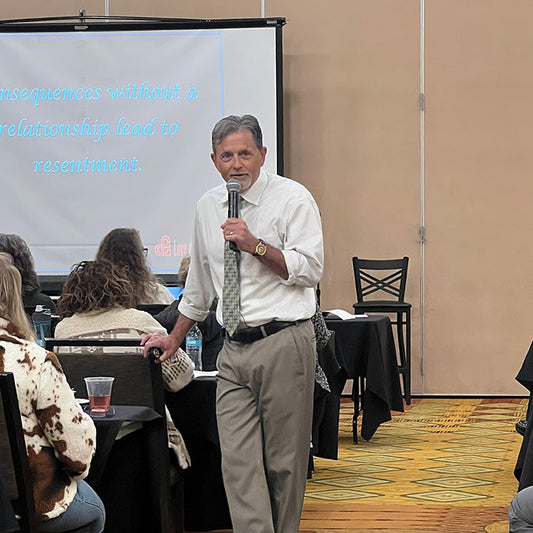A popular quote about communication is, “The great enemy of communication is the illusion of it,” which published in Fortune magazine by William Whyte in 1950. Parents who reach out to us at Love and Logic often describe endless arguments with their children—each side talking louder, but neither truly connecting. Real communication requires more than words; it requires listening with heart.
Some people in our lives naturally invite openness. They create safety, empathy, and trust. The same should be true for parents and our kids are constantly testing whether we are the kind of people they can turn to when life gets tough. The more of these tests parents pass, the more likely kids will be willing to share the challenges in their lives.
Below are three common “tests” that kids give us, including ways we can remain calm and respond with empathy and confidence.

Test 1: Will You Freak Out?
One dad shared that his seven-year-old casually said, “I don’t think telling the truth is that important. Lying isn’t a big deal.” Instead of lecturing, he simply replied, “Thanks for sharing your opinion,” and walked away. He later recognized that this was a test. His child wanted to know: Will Dad stay calm, or will he lose it? Thanks to Love and Logic, the dad avoided overreacting, which kept the door open for future conversations.
Test 2: Do You Really Care?
Listening doesn’t mean staying silent about values. Our role as parents includes guiding our kids gently toward wise choices. One strategy for doing so involves listening to their opinion, and then asking questions about possible consequences. For example, “I appreciate you sharing that with me. Do you think that _____________ might happen if a person did that?”
Test 3: Do You Really Believe in Me?
Lectures send an unintended message: I don’t believe you can figure this out. They communicate doubt about a child’s intelligence and decision-making ability. When we use fewer words, and more thoughtful questions, we send a far more empowering message such as, “If any kid could figure out how to make healthy decisions about this, you’d be that kid!”
No Parent Is Perfect—And That’s Okay
Test anxiety can be debilitating. That’s why it’s best to remember that you don’t have to always pass each of these tests perfectly to raise great kids. The key is demonstrating the desire and the drive to improve every day.
One final thought about communication comes from the full version of Whyte’s quote. “The great enemy of communication, we find, is the illusion of it. We have talked enough; but we have not listened. And by not listening we have failed to concede the immense complexity of our society—and thus the great gaps between ourselves and those with whom we seek understanding.” This is at the heart of Love and Logic’s emphasis on empathy. Heart-felt listening, listening with genuine empathy, is the key to real, open communication with our kids, as well as all others in our lives.
We are most often caught off guard when kids do the unexpected. At these times we tend to respond with lectures and frustration without listening. For tips on how to handle these situations and much more, listen to our audio, Oh Great! What Do I Do Now?
Thanks for reading!























































